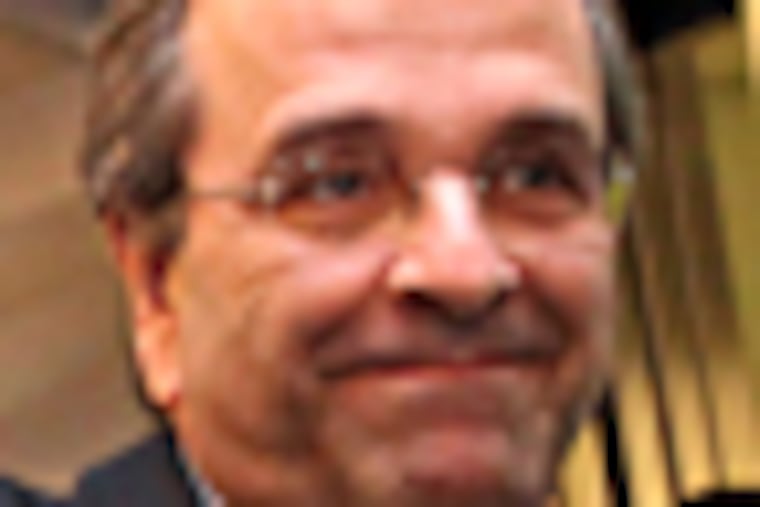Greek voters turn on both leading parties
ATHENS, Greece - Furious Greeks punished the two parties that have dominated politics for decades in the crisis-battered country Sunday, leaving its multibillion-dollar international bailout - and even its future in the euro currency - hanging in the balance.

ATHENS, Greece - Furious Greeks punished the two parties that have dominated politics for decades in the crisis-battered country Sunday, leaving its multibillion-dollar international bailout - and even its future in the euro currency - hanging in the balance.
With more than 83 percent of the vote counted, Greece appeared to be heading toward political stalemate. Nobody won enough votes to form a government, and the two parties that backed the bailout - the conservative New Democracy and socialist PASOK - conceded they need to win over adversaries to form a viable coalition.
"I understand the rage of the people, but our party will not leave Greece ungoverned," said New Democracy leader Antonis Samaras.
New Democracy was leading with nearly 20 percent of the vote, which would give it 110 seats in the 300-member parliament. PASOK, which has spent 21 years in government since 1981 and stormed to victory with more than 43 percent in 2009, saw its support slashed to about 13.5 percent. It will have just 41 seats, compared to 160 in the last election.
The two parties saw their support plummet to the lowest level since 1974, when Greece emerged from a seven-year dictatorship. The outcome showed widespread public anger at the harsh austerity measures imposed over the past two years in return for rescue loans from other European Union countries and the International Monetary Fund. Without the funds, Greece faced a disastrous default that could have dragged down other financially troubled European countries and seen it leave the euro.
Voters who deserted the two mainstays of Greek politics in droves headed to a cluster of smaller parties on both the left and right, including the extremist Golden Dawn, which rejects the neo-Nazi label and insists it is nationalist patriotic. The movement has been blamed for violent attacks on immigrants and ran on an anti-immigrant platform, vowing to "clean up" Greece and calling for land mines to be planted along the country's borders. The party looked set to win about 7 percent of the vote, giving it 21 deputies in parliament - a stunning rise for a group that earned just 0.29 percent of the vote in 2009.
Sunday's other big winner was Alexis Tsipras, 38, leader of the Radical Left Coalition, or Syriza, who saw his party poised for an unprecedented second place with 16.4 percent and 51 seats, the first time in nearly 40 years that any party other than New Democracy or PASOK has held the spot.
Turnout was just over 64 percent - a low figure for the country, where voting is officially compulsory, although no sanctions are applied for not casting a ballot.
Negotiations are expected to begin Monday to form a coalition. As first party, Samaras will get three days to seek partners. If he fails the mandate will go to the second party for a further three days, and then to the third party. If no agreement can be reached, the country heads to new elections. Both Samaras and PASOK leader Evangelos Venizelos, who spent nine months as finance minister, indicated any unity government would have to include more than just their two parties.
But in a note that will likely raise alarm among Greece's international creditors, Samaras insisted any coalition should renegotiate the terms of the country's bailout.
"We are ready to take up the responsibility to form a new government of national salvation with two exclusive aims: For Greece to remain in the euro and to amend the terms of the loan agreements so that there is economic growth and relief for Greek society," he said.
Riding high on his massive gains, Tsipras stuck to his anti-bailout position, saying the agreement should be overturned altogether.